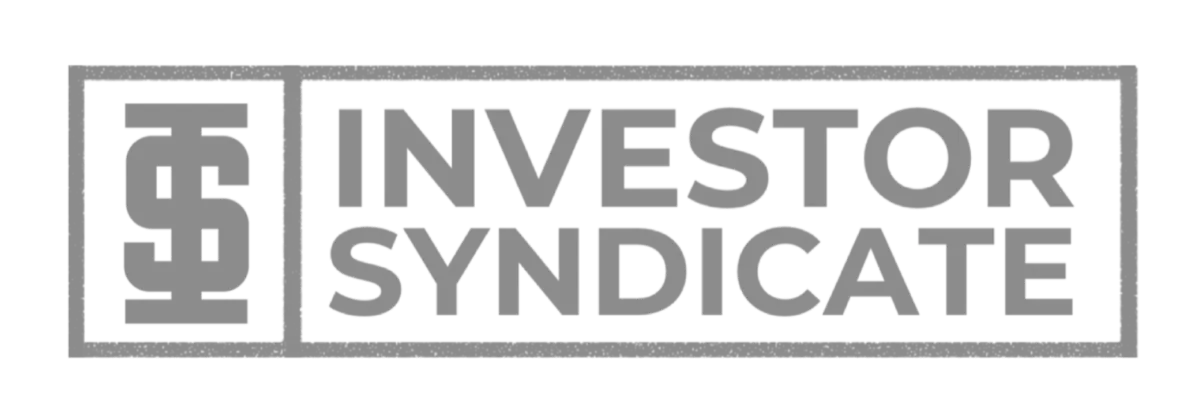Investor Syndicate Blogs
Download The Deal Flipping Playbook

Essential Questions for Investing in Private Debt Funds
Introduction
Investing is a pathway to wealth accumulation and financial security. While traditional investment options like stocks and bonds have their merits, alternative investments like private debt funds have gained popularity for their potential to deliver attractive returns.
These funds provide an opportunity to diversify a portfolio and generate income, but they come with their unique set of risks and considerations. Before diving into the world of private debt funds, it's essential to ask the right questions and make informed decisions. In this article, we will explore the essential questions to consider when investing in private debt funds.
What Are Private Debt Funds?
Private debt funds, often referred to as private credit funds or private lending funds, are investment vehicles that pool capital from various investors to provide loans to businesses, real estate projects, or individuals. These funds operate outside the traditional banking system and can offer borrowers more flexible terms and financing options. Private debt funds encompass a wide range of strategies, including direct lending, mezzanine financing, distressed debt, and more.
Why Consider Private Debt Funds?
Before delving into the essential questions, it's crucial to understand why private debt funds are worth considering as part of your investment strategy:
Diversification: Private debt funds offer an opportunity to diversify your investment portfolio beyond stocks and bonds. They can provide a stable source of income that is less correlated with the stock market's ups and downs.
Attractive Returns: Private debt investments can offer potentially higher returns compared to traditional fixed-income investments like government or corporate bonds.
Income Generation: Many private debt funds focus on income generation, making them suitable for investors seeking regular cash flow.
Risk Mitigation: Depending on the fund's strategy, private debt investments may offer a degree of risk mitigation through asset-backed lending or collateralized loans.
Now that we understand the benefits, let's delve into the essential questions to ask when considering an investment in private debt funds.
1. What Is the Fund's Investment Strategy?
The investment strategy of a private debt fund is a crucial factor to consider when contemplating investment. These funds come in various flavors, each with a unique approach to lending. Some focus on providing loans to small and medium-sized enterprises (SMEs), while others specialize in real estate financing or distressed debt.
Understanding the fund's strategy is vital because it determines the types of loans it will make and the level of risk associated with those loans. Whether you seek stability, income generation, or specific sector exposure, aligning the fund's investment strategy with your financial goals is a fundamental step in making an informed investment decision.
2. Who Manages the Fund?
The management team behind a private debt fund plays a pivotal role in its success. Investors should scrutinize the expertise, track record, and experience of the fund's managers. A skilled and experienced management team is more likely to make sound lending decisions, assess risks effectively, and navigate economic challenges adeptly.
It's crucial to have confidence in the fund managers' abilities to execute the fund's strategy. Thoroughly researching the individuals responsible for managing the fund is a fundamental step in making informed investment decisions in the realm of private debt funds.
3. What Is the Fund's Risk Profile?
Assessing the risk profile of a private debt fund is a critical step in making informed investment decisions. Private debt investments inherently carry risks, and understanding the fund's risk profile is essential for investors. The risk profile encompasses various factors, including credit risk, interest rate risk, and liquidity risk.
It's crucial to inquire about the fund's historical default rates and how it manages potential losses. By evaluating the risk profile, investors can determine whether the fund aligns with their risk tolerance and investment goals. Making sound investment choices requires a clear understanding of the risks involved in private debt funds.
4. How Is the Fund Structured?
Understanding the structure of a private debt fund is vital when considering investment. These funds can take different forms, including open-end and closed-end structures, each with its unique characteristics. Open-end funds offer more flexibility for investors, allowing them to enter or exit the fund regularly. In contrast, closed-end funds typically have a fixed investment period and limited opportunities for redemption.
The choice between the two depends on your investment goals and liquidity preferences. By grasping the fund's structure, you can make informed decisions about how your capital is managed and how easily you can access your investments when needed.
5. What Are the Fees and Expenses?
When considering an investment in private debt funds, it's crucial to delve into the topic of fees and expenses. Just like any investment vehicle, private debt funds come with associated costs that can affect your overall returns. These fees typically include management fees, which compensate the fund's management team for their services, and performance fees, often referred to as carried interest.
It's essential to understand the fee structure, as it varies from one fund to another and can impact your investment's cost-effectiveness. Evaluating these fees and expenses is a vital part of making informed decisions about whether a specific private debt fund aligns with your financial goals.
6. What Is the Minimum Investment?
When considering an investment in private debt funds, one essential aspect to examine is the minimum investment required. Private debt funds typically establish minimum investment thresholds that investors must meet to participate. It's crucial to assess whether the fund's minimum investment aligns with your financial capacity and objectives.
Some funds offer different share classes, each with its minimum investment requirement, providing flexibility for investors. By understanding and evaluating the minimum investment, you can determine whether the fund is accessible and suitable for your investment goals, ensuring that it fits comfortably within your financial portfolio.
7. What Is the Fund's Track Record?
Assessing the track record of a private debt fund is a vital step in making informed investment decisions. While past performance doesn't guarantee future results, it offers valuable insights into how the fund has performed historically. By reviewing the fund's annual returns, volatility, and consistency, investors can gauge its ability to navigate different market conditions.
A fund with a track record of delivering consistent returns and effectively managing risks may instill greater confidence. However, it's essential to consider other factors in conjunction with the track record, such as the fund's strategy, management team, and risk profile, to make a well-rounded evaluation before investing.
8. What Is the Fund's Exit Strategy?
Understanding the exit strategy of a private debt fund is crucial for investors. It refers to how and when investors can access their capital and potential profits. Exit strategies vary among funds, and some may have specific terms and conditions for withdrawals. For example, some funds might allow investors to redeem their shares on a quarterly basis, while others may have longer lock-up periods.
Funds may employ different exit options, such as selling loans, refinancing, or holding until maturity. Being aware of the fund's exit strategy ensures that investors have clarity on when they can expect to access their funds and make informed investment decisions.
9. Is the Fund Regulated?
When considering an investment in a private debt fund, it's crucial to inquire whether the fund is regulated. Regulation can vary depending on the fund's structure and location. Regulated funds are subject to oversight by financial authorities, providing a level of investor protection and transparency.
Understanding the fund's regulatory status is essential as it can impact the fund's operations and compliance with relevant laws. For investors, knowing whether a fund is regulated helps assess its credibility and adherence to industry standards, contributing to a more informed investment decision-making process.
10. What Is the Fund's Investment Horizon?
Investors should pay close attention to the investment horizon of private debt funds. The fund's investment horizon refers to the expected duration of the investments it makes. Some funds have longer investment horizons, often several years, while others offer shorter-term opportunities. Understanding this aspect is crucial because it needs to align with your financial goals and timeline.
If you have a specific investment horizon in mind, ensure that the fund's strategy matches it. By considering the fund's investment horizon, you can make informed decisions and choose investments that suit your objectives, whether they involve long-term commitments or shorter-term opportunities.
In Conclusion
Investing in private debt funds can be a rewarding addition to your investment portfolio. However, it's essential to approach these investments with due diligence and ask the right questions. By understanding the fund's strategy, risk profile, management team, and fees, you can make informed decisions that align with your financial objectives. Private debt funds offer diversification, income potential, and the opportunity to participate in various sectors of the economy, making them a valuable consideration for investors seeking alternative investment opportunities.
Contact Us

Bet On Yourself
Empowering real estate investors with the tools they need to scale.






